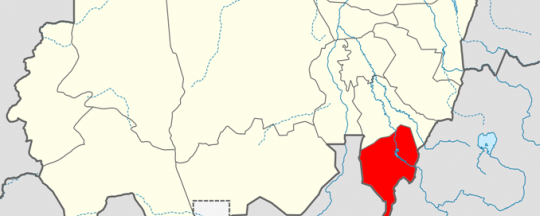A group of relief workers today warned of the possibility of a ‘localized famine’ in part of Sudan’s Blue Nile State, saying the population could starve or flee to refugee camps in neighboring Upper Nile State.
The South Kordofan Blue Nile Coordination Unity stated in a ‘flash update’ disseminated today by email that around 30,000 people living the Wadaka and Chali areas of Kurmuk County “are at risk of a localised famine” owing to poor maize and sorghum cultivation.
“At least 30,000 people are currently eating wild fruits and roots, and are at risk of a localised famine. Immediate assistance should be provided to these populations to contain the hunger gap of the next four months,” the group said.
Previously, deaths due to malnutrition and sickness from eating inappropriate wild foods have already been reported from the Koma Ganza area of Blue Nile State.
Regular market monitoring indicates that prices of sorghum, maize and beans have doubled from April to August. “This latest spike in prices is due to the overwhelming demand in the face of limited supply according to local monitors. People are now mainly eating roots and wild fruits,” reads the update.
However, sporadic rains started in Wadaka and Chali payam last week. If consistent, they should allow for the long-term sorghum to be harvested in January-February 2016. This means that food assistance in the coming months would only be needed until the “hunger gap” ends with the next harvest.
Alternatively, farmers might move to refugee camps in neighboring South Sudan. But many of the people in the affected areas are farmers who have not moved to the camps in spite of four years of insecurity in Blue Nile.
“Refugee camps in Maban are also reporting heightened insecurity levels in the past weeks. A further exodus will also have huge political, security and financial implications on current humanitarian operations in South Sudan,” warned the Coordination Unit.




